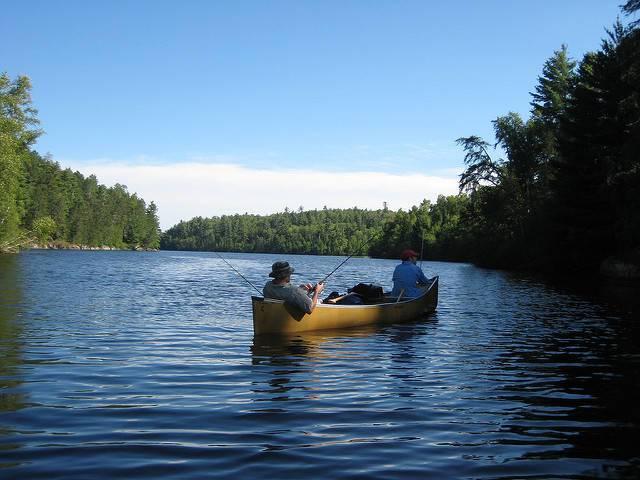
While many of us were preoccupied with the holidays and bringing in the new year, the Trump Administration has certainly been busy. Lost in the buzz over the tax cuts was a flurry of maneuvers by the federal government’s executive branch, which reversed several laws launched related to energy, mining and transportation.
The announcements – some of which were not even announced publicly but executed by other means, akin to the FedExed letters announcing the firings of all members of an HIV/AIDS advisory council – were clearly buried during the last two weeks of the year with the understanding that they will not be popular with the U.S. public.
The following under-the-radar law reversals are especially ironic, considering Interior Secretary Ryan Zinke’s public statement last week declaring that the Trump Administration’s environmental legacy is “second only to Teddy Roosevelt.”
Nixed regulations meant to prevent another Deepwater Horizon oil spill
In a late Friday announcement designed to escape press coverage, the Bureau of Safety and Environmental Enforcement (BSEE), which is charged with enforcing worker safety and environmental protection within the offshore oil and gas industry, announced it had revamped “production-safety-systems” rules. Those rules were designed to reduce various safety and environmental risks, including those attributed to the 2010 explosion, which killed 11 workers and led to the Deepwater Horizon Disaster in the Gulf of Mexico. The BSEE claims the relaxation of these rules will save the U.S. energy sector $228 million over 10 years.
To many environmentalists, the administration’s doublespeak is breathtaking. As BSEE’s director, Scott A. Angelle, said in a public statement:
“I am confident that this revision of the Production Safety Systems Rule moves us forward toward meeting the Administration’s goal of achieving energy dominance without sacrificing safety. By reducing the regulatory burden on industry, we are encouraging increased domestic oil and gas production while maintaining a high bar for safety and environmental sustainability.”
The reversal of anti-fracking rules
Also on Friday, the last business day before the long new year’s weekend, the Bureau of Land Management (BLM) rescinded 2015 rules that enacted limitations on fracking across public lands. Ongoing litigation had prevented these regulations from ever going into effect, but the BLM finally decided to put the kibosh on the rules to “reduce the burden of federal regulations that hinder economic growth and energy development.” The BLM also announced that 1,700 fracking wells have been, or are slated for, drilling on both federal and Native American lands during this fiscal year.
Ending wildlife protection on lands used for energy and mineral extraction
The Friday before Christmas, the Department of Interior ended a policy designed to protect migratory birds. In a 41-page decision, one of the department’s attorneys described the rule as “the sort of recipe for arbitrary and discriminatory enforcement.”
Letting industry off the hook for bird deaths, including that of the nation’s symbol, the bald eagle, does not mean companies will start wantonly destroying natural habitats. What it does mean, however, is that many companies in sectors such as energy will no longer invest in technologies or develop precautionary steps that could prevent the death of these birds in the first place.
According to the Audubon Society, the rollback of these rules reverses 100 years of progress dating back to the passage of the Migratory Bird Treaty Act (MBTA) in 1918. “Gutting the MBTA runs counter to decades of legal precedent as well as basic conservative principles,” said Audubon’s David O’Neill in a December 22 press release. “For generations Republicans and Democrats have embraced both conservation and economic growth and now this Administration is pitting them against each other.”
A popular recreation area is now at risk of damage from mining operations
For over 90 years, the Boundary Waters Canoe Area Wilderness in Northern Minnesota has offered 1,200 miles of canoe routes, 2,000 campsites and 12 hiking trails across 1 million acres nestled against the state’s border with Canada. As described in a profile written by the Juliet Eilperin of the Washington Post, one of former President Obama’s final acts was to decline the renewal of copper and nickel leases on 234,000 acres of lands bordering the reserve.
The Department of the Interior did not even make the announcement public on its web site, choosing instead to inform a state political leader who is an ally of the Trump Administration. One reason could be that the optics are particularly bad, as the company lobbying for the rule reversal is a subsidiary owned by a Chilean mining company – led by a family who rents their D.C. mansion to the president’s daughter, Ivanka Trump. The state’s governor, Mark Dayton, did not mince words:
“This shameful reversal by the Trump Administration shows that big corporate money and special interest influence now rule again in Republican-controlled Washington. We will have to uncover why the financial interests of a large Chilean corporation, with a terrible environmental record, has trumped the need to protect Minnesota's priceless Boundary Waters Canoe Area.”
Image credit: Greg Walters/Flickr

Leon Kaye has written for 3p since 2010 and become executive editor in 2018. His previous work includes writing for the Guardian as well as other online and print publications. In addition, he's worked in sales executive roles within technology and financial research companies, as well as for a public relations firm, for which he consulted with one of the globe’s leading sustainability initiatives. Currently living in Central California, he’s traveled to 70-plus countries and has lived and worked in South Korea, the United Arab Emirates and Uruguay.
Leon’s an alum of Fresno State, the University of Maryland, Baltimore County and the University of Southern California's Marshall Business School. He enjoys traveling abroad as well as exploring California’s Central Coast and the Sierra Nevadas.














